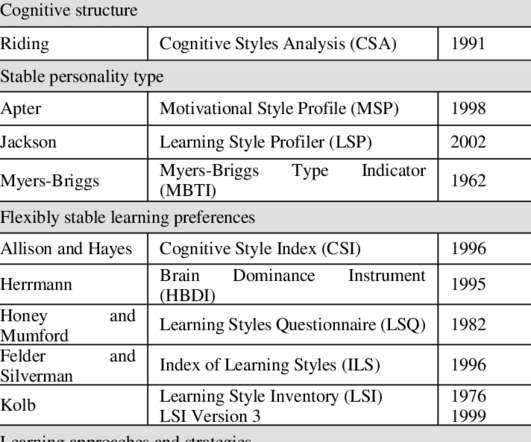Cammy Beans Learning Visions: Describing What You Do: Instructional Design
Learning Visions
MAY 6, 2009
Little Shots of Theory Instructional Design as a practice in corporate vs. A Conversation with Karl Kapp ► February (11) ID Live with Charles Reigeluth on EdTechTalk Kineo Insights Webinar: Kronos Moodle Case Study Kineo Insights Webinar: The Truth About Open Sourc. Bob Mosher: Performance Support and Learning at th.









































Let's personalize your content